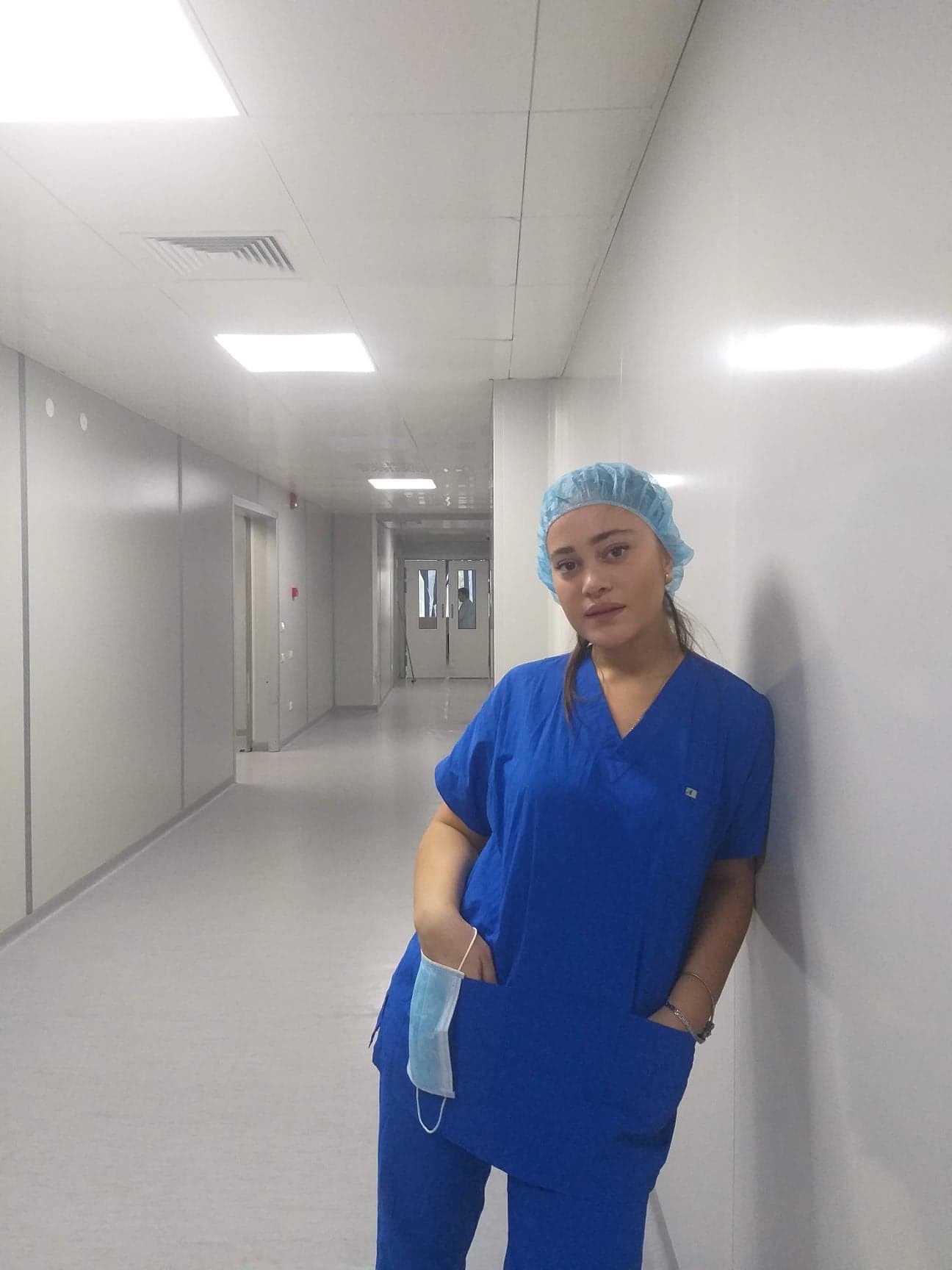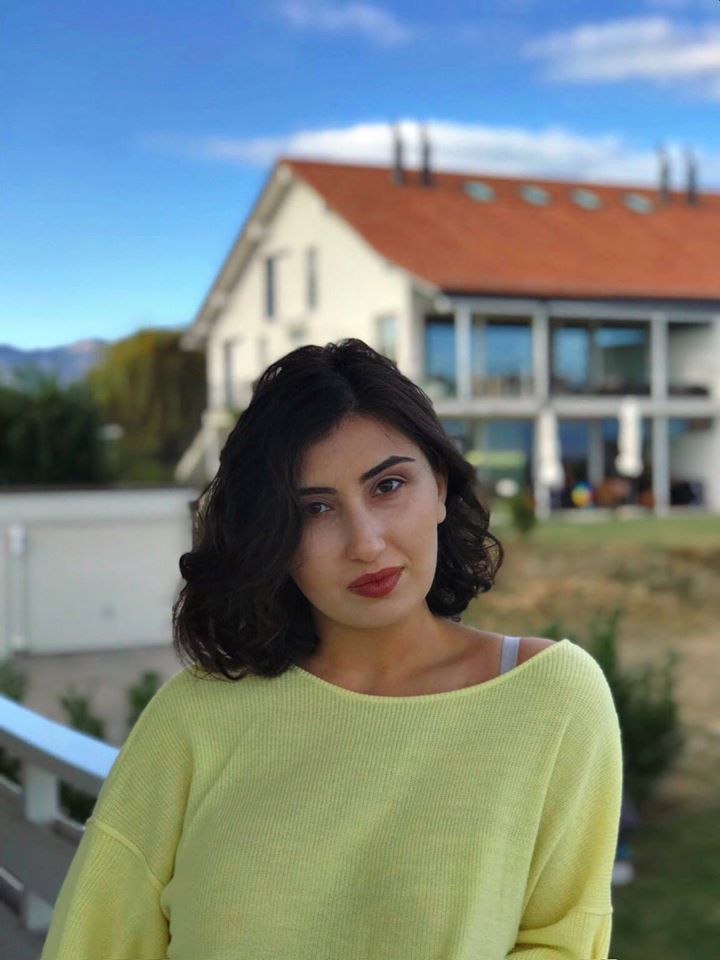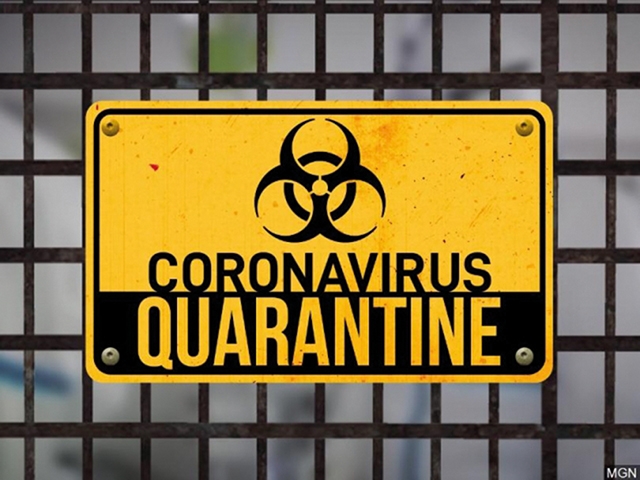Georgians in Quarantine: A Personal Story
INTERVIEW
As of Thursday, Georgia has 130 coronavirus cases and 5550 people currently in quarantine. To explore the strange reality of quarantine, GEORGIA TODAY conducted two interviews with two quarantined Georgians. The first interviewee is Mariam Katsadze, a 21-year-old medical student who went through medical practice in Germany from February to March. She thought her one month spent in Germany would be an outstanding experience. She was right, it was, but not only for her career. Coronavirus starting changing its breakout epicenters in early March, seeing Germany quickly becoming one of the European countries with the most coronavirus infections.
At the time of writing, Germany has 78,115 confirmed cases of COVID-19 and 944 fatalities.
Mariam walks us through her experience with German measures to tackle the virus, coming back home and being put in quarantine.
Tell us where you were when coronavirus started spreading throughout the world.
In February, when Europe was not yet the new epicenter of the coronavirus, I flew to Germany. I worked as a junior doctor at the Klinikum Stadt Soest in Soest, Germany.
The spread phase of the virus started in Germany at the beginning of March. Speaking from the example of the clinic I worked at, from March 13, visitors were not allowed in the clinic and the employees could only get in with a special pass. From March 18, after a few cases of the COVID-19 infection were confirmed inside the clinic, the reception was isolated and the clinic stopped accepting planned patients or performing operations. I worked in the neurology department and we switched to a different style of working. Our priority was to maximize the discharging of patients from the hospital, as the clinic was getting ready to take in more and more COVID-19 cases. Unfortunately, prior to March 20, no special measures taken to protect the doctors: we were not even wearing face masks or medical gloves. They only started changing the approach from March 23, the day I left Germany.
In the town I lived in, they prohibited the movement of more than two people in one space and also closed different public spaces from March 20. Before then, no measures were taken whatsoever: the streets were filled with people, and unfortunately no one feared being outside.
Why did you decide to come back to Georgia?
I live and study in Georgia. I’m a student of Tbilisi State Medical University. Plus, my contract at the clinic was only until the end of March, so I had to come back.

What did you have to go through to come back to Georgia? Was it easy to fly back home?
Coming back here was certainly not easy. My two flights were cancelled. Buying a ticket out of Berlin, destination Tbilisi, was a complicated process, and very expensive, at that. This was not a special flight planned by the government to bring back citizens; this was a regular flight. Getting to Berlin was actually harder, as it took me 7 hours as opposed to the normal 4. Every second train was canceled and I caught the last train of that day. It is very difficult to cope in these situations.
Walk us through your journey from Berlin airport to quarantine. How organized was the process of bringing you home?
There were no measures taken in Berlin airport and that is all on Germany: they were the ones who should have taken care of that. Even the airport employees were not wearing face masks because you just can’t get them there. We didn’t go through any checks in Berlin and the chess-principle of sitting in the plane couldn’t be applied. When we landed in Georgia, they broke us up into 10-man groups and that’s how we left the plane. Those waiting for us outside handed us face masks, disinfected our hands, then took away our passports. They quickly divided us up on different buses and took us to the quarantine zone.
How is quarantine and how are you feeling? Have there been any cases confirmed in your quarantine zone?
I’m quarantined in the Welmond Hotel in Batumi. The conditions here are very good. As you know, our healthcare workers do not disclose personal information about the infected, so I don’t have any information on whether or not some have shown symptoms in this hotel. I’m feeling well and healthy, and I’ll leave quarantine on April 7.
For the final contrast, how would you compare the approaches to coping with the coronavirus on the German and Georgian sides?
“Georgia took the appropriate measures earlier than Germany. The German government had other priorities and that is why they have such big numbers today. On the other hand, there is a part of society in Germany, just like in Georgia, who do not obey the new rules of the pandemic, even when they can get fined for it in both countries. There were a lot of cases of isolation violation in Germany, too. The tactics for treatment are different in the two countries: more people have this virus in Germany than the confirmed reports tell us, and they do not run tests for every patient with symptoms. Many go through the treatment at home, which in most cases only involves good nourishment and drinking lots of water. I can be confident when I say that Georgian doctors are putting their best into their jobs, approaching the minor and serious cases with individual planning. Of course, one of the things which makes that possible is that we don’t have too many infected cases yet. However, still our doctors are doing their best to combat this virus. I hope this is a fight with positive outcomes. I believe that the science and medicine of the 21st century can defeat COVID-19”.
Our second interviewee is Tekla Dakhundaridze, a 25-year-old student of Erasmus University Rotterdam, doing her masters in Health Economics, Policy and Law. She just got back to her native Georgia a few days ago, on March 31. For GEORGIA TODAY she tells the story of her way back home, and contrasts the measures of The Netherlands and Georgia, the two states that got their first confirmed case of COVID-19 on the same day, February 26. Now The Netherlands has 13,614 infected and 1,173 dead from the virus.
“When coronavirus started spreading, I was in The Netherlands,” Tekla tells us. “The first recommendation was not to travel to Italy. Later, events of 100 or more persons were banned, and people were encouraged to work from home. From March 13, the education process went online in all universities and flights from a number of countries e.g. China and Italy, were cancelled.
Soon public spaces were closed, including cafes and restaurants, and the government encouraged people to stay at home and avoid social contact. People with mild cold symptoms were asked to self-isolate and those with severe symptoms had to contact their GPs. Further steps of treatment were to be decided by the GP, among them hospitalization and corona testing”.
Why did you decide to come back to Georgia?
As confirmed cases of corona were increasing, more and more students were leaving campus going back to their families. I was one of them. I wanted to be with my loved ones during these uneasy times. Besides, education is online until June 1, so my physical location was no barrier to continuing my studies at the Erasmus University Rotterdam.

What did you have to go through to come back to Georgia?
The date of my original flight from Amsterdam to Tbilisi was March 23 but the day prior, it was canceled and the Government of Georgia made the announcment that only a special flight would take place. Georgian Airways changed my ticket and finally I got back to Georgia on March 31 on that special flight.
Walk us through your journey from airport to quarantine.
My flight was full, no seat was free, so the recomendation to keep 1.5 meter distance was not taken into consideration. No facemasks were distributed between the passangers, so some people were wearing them and some not. As soon as I arrived at the border control, medical staff measured my temperature and later I was transferred to the Sheraton Grand Tbilisi Metekhi Palace Hotel. Medical and administrative staff are trying to assure my maximum safety and comfort in quarantine; they ask how I’m feeling and what my feedback is about the food and general conditions here. I have to measure my temperature three times in a day, and if any symtoms of the virus appear, I’m to call to the doctor who is also staying in this hotel.
How would you compare the approaches to coping with the coronavirus on the Dutch and Georgian sides?
The measures taken by The Netherlands have been criticized, as they were not taken in time. There, flights from China, Iran, Italy, and South Korea were cancelled on March 13, when in Georgia the same thing happened on March 4. But people there are more law abiding: they always try to keep 1.5m distance no matter if they are in a supermarket or just having a walk; people really stay at home and the streets and buses are almost empty. Where, before corona, numerous people were cycling, now only a few can be seen. In Georgia, people still struggle to keep 1.5 m distance, at least that was my experience during the journey from Amsterdam Airport to Sheraton Grand Tbilisi.
Protocols to treat patients infected by corona are also different in The Netherlands: only people who have severe symptoms (temperature above 38 C and difficulty breathing) are tested on a GP’s decision.
By Nini Dakhundaridze












